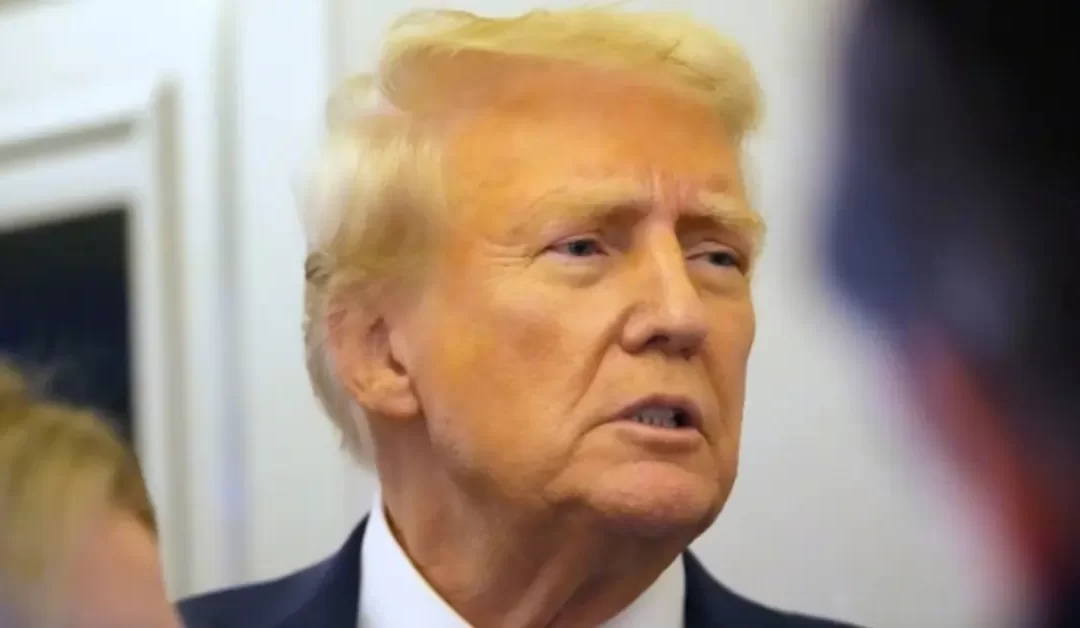Scientists, faculty, and staff at Emory University received a concerning email on Saturday, announcing significant funding caps from the National Institutes of Health (NIH). This change signals a need for research institutions across the U.S. to cut back on budgets.
For Emory University, a leading institution specializing in health and medical research—including cancer treatments, vaccines, and HIV prevention—the new federal cap means an annual funding reduction of $140 million. “This development could affect nearly every academic unit at Emory, with both immediate and long-term consequences for our scientific research, clinical trials, patient care, and other academic pursuits,” the university memo warned.
Impact of Trump Administration’s Executive Actions
The funding cuts are part of a broader policy shift resulting from President Donald Trump’s executive actions. These measures risk slowing or halting scientific research in the United States, threatening public health advancements and potentially causing the nation to fall behind in global scientific progress.
Across federal agencies that conduct or fund scientific research, scientists have expressed fears about staff layoffs and losing critical funding. Universities conducting groundbreaking studies are now scrambling to assess how these cuts will impact ongoing projects.
Research Budgets Slashed: Lawsuits and Backlash
The latest funding restrictions, which prompted the Emory University announcement, came after the Trump administration imposed limits on how much research institutions can charge the government for maintaining labs, equipment, and administrative costs. As a result, 22 states have filed lawsuits against the administration, accusing it of “illegally slashing grant funding” for research institutions.
The Department of Health and Human Services (HHS) defended the move, stating it aims to ensure that more funding goes directly to scientific research rather than administrative expenses. “Our administration wants America to have the best research in the world. By directing more funds toward science and not overhead, we are taking another step in that direction,” said HHS spokesperson Andrew Nixon in a statement.
Scientists Voice Concerns Over Uncertain Future
Research leaders across the country warn that these budget cuts could jeopardize vital studies, including those on cancer, climate science, and infectious diseases. “These funds help keep the lights on at the university,” said Katie Edwards, director of the Interpersonal Violence Research Laboratory at the University of Michigan. “Without proper funding, many universities will struggle to remain leading research institutions in the world.”
At the federal level, researchers at the NIH have been informed that they can no longer hire new trainees, review scientific papers, or recruit participants for clinical trials. Edwards, who employs about 50 research assistants, shared how the uncertainty has disrupted ongoing projects. “We had an intervention study designed to prevent depression and suicide among transgender youth. Suddenly stopping this trial could have life-threatening consequences,” she explained.
Funding Cuts Affect Global Health Research
The impact of these funding restrictions extends beyond U.S. borders. Some overseas research labs monitoring infectious diseases that could evolve into global pandemics face potential closure. One early-stage safety study in South Africa, testing vaginal rings for HIV and pregnancy prevention, was abruptly terminated, forcing researchers to remove devices from participants before the trial was completed.
Leila Mansoor, a senior scientist at the Centre for AIDS Programme of Research in South Africa, described the situation as a severe setback. “The emergency withdrawal violated participant trust and undermined years of research. We are now scrambling to find alternative funding sources,” she said.
Scientists Fear Politics Over Objectivity
Among the broader scientific community, there is growing concern that impartial research will become politicized. Some researchers worry that funding decisions may be influenced by political affiliations rather than scientific merit. “We want to continue this nonpartisan work,” said a coastal researcher working with NOAA. “But there’s fear that only projects aligning with the administration’s agenda will get funded.”
The politicization of scientific advisory boards has also raised alarm. The Trump administration recently dismissed all members of the Scientific Advisory Board and the Clean Air Scientific Advisory Committee—two independent panels advising the Environmental Protection Agency. This move echoes actions taken during Trump’s first term, when similar dismissals occurred.
The Future of U.S. Science Hangs in the Balance
With budget restrictions, staff layoffs, and political interference, the future of U.S. scientific research remains uncertain. The latest news suggests that without swift intervention, the country risks losing its status as a global leader in innovation and medical advancements. As researchers brace for the impact of these changes, they continue to call for clarity and stability in funding policies.
The daily news highlights the urgency of these funding challenges, emphasizing the critical role research plays in public health, technology, and global scientific progress. The coming months will determine whether these policies will be reversed or if researchers will have to adapt to a drastically different funding landscape.































